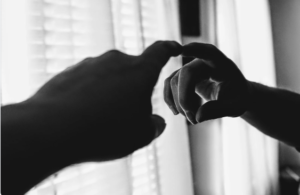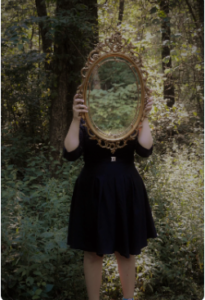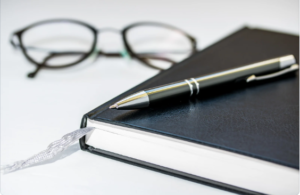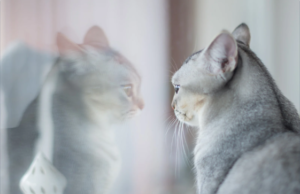Self-Awareness: Using Self-Observation & Reflection
Self-Awareness and How We See the World
The way we see the world is not the way that the world is. Sorry about that. In fact, there is no one way that the world is. The way that we see the world has a lot to do with our level of self-awareness.
Nearly everything is subject to interpretation. My soft, gentle rain, nourishing the forest is someone else’s bad weather! My soaking up the sun and getting a tan is someone else’s slaving away in the punishing heat.
Some people live their whole lives without the self-awareness that enables them to realise this. Maybe that’s why we find this time of year so challenging, as we spend so much time with family members who just don’t realise that their worldview isn’t shared by others. They are the people who say: “I speak as I find it” as if that weren’t true of every single one of us.
Not that our way of seeing the world is wrong. It is absolutely valid. But it is only one viewpoint, unique to each of us. And that viewpoint has limits – blinkers – that narrow our experience and understanding of life.
Developing Self-Awareness Through Experience
Some of us become aware of those limits as we experience different life events. Working in different countries, for example, or becoming a parent can shift how we see the world.
When we experience new things, we can either ignore the new evidence that is pushing at our blinkers or we can use it as a cue to reflect and to flex our way of seeing the world.
That is what I mean when I talk about self-awareness: our ability to see our limits and flex how we see the world accordingly.
Coaching and the Development of Self-Awareness
When a client comes to me for coaching, typically it’s because something has made them aware of those limits. They feel stuck. Their previous habits and behaviours are no longer serving them.
For example, Barry (not his real name) was not being offered the promotion he craved. “They want you to make me better at dealing with idiots, Maria,” he told me. As we worked on developing his self-awareness, he became aware of the limits in how he was seeing things, Barry came to realise that some of those idiots actually had some good ideas!
To help my clients flex their way of seeing the world, I focus on helping them build a very important skill – their ability to be self-aware, and to know themselves.
What is Self-Awareness?
Self-awareness breaks down into two parts: self-observation and reflection.
Self-Observation
Self-observation is a powerful but rare ability. For example, I may know that I feel less confident when speaking in public if there’s someone I know in the audience.
If I’m able to self-observe, however, I can notice my thoughts, my emotions and my physical sensations in the moment.
As I step up to speak and see a peer in the audience, I notice that sinking sensation in my stomach, and the tightness in my throat. I’ll notice that I feel anxious, nervous. I’ll notice that I’m thinking, for example, “What if she thinks I don’t know what I’m talking about?”
By tuning into the Observer, I can build my ability to step back and choose a different path, to self-correct, to act rather than react.
“A-ha” the Observer might say, “I notice my stomach sinking and my throat tightening. How interesting! That usually means anxiety. Ah yes, there’s my colleague. Let me do something to calm my nervous system.”
What that something is will vary from person to person.
What is key is that no one can do anything different until they are able to catch themselves in the moment, to self-observe.
So, I work with my clients to build their ability to step back and notice.
So often in life, we are too close to the challenges we face to be able to see the contribution that we are making to those challenges. My role as coach is to help my client step back and notice, to see the wood for the trees.
“You can never awaken using the same system that put you to sleep in the first place.” ~ Gurdjieff
Self-Awareness and Identifying Habits, Themes and Patterns of Behaviour
Changing the system and developing self-awareness requires self-observation. Without that, we are destined to continue in the same patterns of behaviour that have caused us to be stuck in the first place, to live a life with eyes closed, asleep, unable to see patterns and themes.
 It’s not that anything we’ve done is wrong in the past. It’s just that those habits and patterns of behaviour are no longer serving us. There may be habits and patterns of behaviour that we developed deliberately, consciously, or it may be just the way we’ve grown used to doing things.
It’s not that anything we’ve done is wrong in the past. It’s just that those habits and patterns of behaviour are no longer serving us. There may be habits and patterns of behaviour that we developed deliberately, consciously, or it may be just the way we’ve grown used to doing things.
When Len came to me, he said he was struggling to have any work/life balance. He was working long hours and most weekends. He had thought it was poor time management and had studied lots of articles on prioritisation, to no avail.
I set him a self-observation, noticing what he planned to do each day and what he actually did, what got in the way. He noticed that it was interruptions during the day that sent him off course. We refined the self-observation further. What was the source of those interruptions?
He observed that the interruptions were from his team, but what surprised him was that the topics his team were bringing him were usually more important than what he had planned to do. He rearranged his diary, allowing an hour each morning for his team, ensuring he addressed their important issues and reduced interruptions.
Self-Awareness and Creating Sustainable Change
It’s by building someone’s ability to self-observe that I achieve my ultimate aim as coach, to make myself redundant. For me, that’s the beauty of coaching. That the person you’re working with is able to self-correct, to address not just the issue that has brought them to coaching but also other issues that they may face in the future. Because when my clients can self-observe, they can self-correct and that’s what makes any change long-term and sustainable.
“Self-observation brings man to the realisation of the necessity of self-change. And in observing himself, that self-observation itself brings about certain changes in his inner processes. He begins to understand that self-observation is an instrument of self-change, a means of awakening.” ~ Gurdjieff
 Building Your Ability to Self-Observe
Building Your Ability to Self-Observe
A good coach will work with you to tailor a programme to increase your ability to self-observe, but here are some tips on how you can make a start.
What is it that you want to notice?
Be specific about what it is you’re curious about. In Len’s case, it was what he actually achieved compared with what he had planned. You can always refine or tweak what you’re observing at a later stage, as you continue to flex your self-awareness muscle.
Do it regularly
Little and often is the key. You may think you know what your patterns are, but only observation over a sustained period of time will give you insights and increase your level of self-awareness.
Write down what you notice
We think we’ll remember. We don’t.
Observe the facts
Who were you with? What was the topic? Was it in real life or virtual?
Look for emotions
Notice and name what you feel. Humans normally experience multiple emotions, so don’t settle for just one. Look deeper.
Notice what happens physically
Scan your body, head to toe. What do you notice?
Reflect on themes and patterns
Review your notes. What is recurring?
Suspend judgement
You are not the judge and jury when you observe. You are the neutral evidence gatherer.
Don’t try to do anything differently yet
Allow yourself to gather enough data before jumping into solutions. Taking action too soon may shut down further insights. Stay curious.
Using Reflection to Build Self-Awareness
The second part of building self-awareness is developing our ability to reflect, to take data and see patterns and themes, to apply them to ourselves and see what needs to shift. I believe this is one of the key skills needed for personal growth and development, and for becoming more self-aware.
In my opinion, this is why so many self-help books fail to deliver: general approaches, applied generally, do not achieve specific results. It’s only the skill of self-reflection that helps us develop our self-awareness so that we are able to see what will produce results for us personally.
Just as our way of seeing the world is unique, so our approach to growth and development needs to be unique and only reflection will deliver that. That’s what makes reflection so important.
Claire had been told that she needed to speak more, to make herself heard more in meetings. Through observing herself, she noticed when she spoke less, what her were emotions and what happened to her physically. She reflected on the question “When do I speak freely and confidently?”.
By doing this, she was able to identify several factors that she could control, to give her the opportunity to be at her best in key meetings. These factors were unique to her but included such tasks as taking time to prepare thoroughly, doing a breathing exercise when she noticed her anxiety in the meeting, and building her connection to colleagues who she found intimidating.
What Tools Can Help Us to Reflect, and Where Can We Start?
Journaling
 Writing down your thoughts and observations can be a very powerful way of developing self-awareness. Many self-development books have exercises that you can use to apply the general principles to your own situation, which will greatly increase the chances of the techniques having an impact. Do those exercises and keep them in a journal, whether paper or electronic.
Writing down your thoughts and observations can be a very powerful way of developing self-awareness. Many self-development books have exercises that you can use to apply the general principles to your own situation, which will greatly increase the chances of the techniques having an impact. Do those exercises and keep them in a journal, whether paper or electronic.
Or you can just write ‘free style’, spontaneously writing whatever comes to mind, emptying your thoughts without judgement onto the page. “The Artist’s Way” by Julia Cameron provides more information on this approach and is well worth a read.
Personality Profiles
Any personality or behavioural profile can add value. View them as a lens through which to look at yourself so that you can develop greater self-awareness, rather than a box you are being put into. Ask yourself: what feels true for you? What feels false? What may be true that you wish weren’t? If it feels appropriate, you can ask a close friend to review the profile to help you identify blind spots.
My personal favourite profile for developing self-awareness is the Enneagram. The Enneagram has over 400 potential combinations of behaviours, and helps you to identify the box that you have been putting yourself in. It guides you to development activities to help you climb out of that box. “The Wisdom of the Enneagram” by Riso and Hudson is a good starting point.
I’ve also recently discovered Human Design as a tool for developing self-awareness, and am currently working my way through “Human Design” by Chetan Parkyn. It has helped me identify themes in myself that were previously complete blind spots.
Reflection Questions
Pick a question to spend time pondering once a day. Useful questions include
- When did I feel in flow, at ease today?
- How did I let go of control today?
- What brought me joy today?
Working With a Coach to Develop Self-Awareness
When you’re working on developing your self-awareness, it can be very hard to step back and notice without someone else’s external viewpoint. It’s hard to uncover blind spots. A coach can hold up a mirror and show you what you maybe haven’t been noticing.
There are no restrictions on who can call themselves a coach though, so make sure your coach has a professional accreditation, such as with the International Coach Federation.
The way we see the world is not the way the world is. And thank goodness for that! It means that those of us who are inherently curious (coach speak for nosy) will always find plenty to explore in ourselves and in others in our journey towards developing increasingly higher levels of self-awareness.
If this article sparked your interest, and you’d like to chat to see whether you could benefit from working with a coach to further develop your self-awareness, contact me at +44 788 436 7763 or email [email protected]
Find out more about my coaching approach and how I work 1:1 here or simply follow this link to connect with me on LinkedIn
